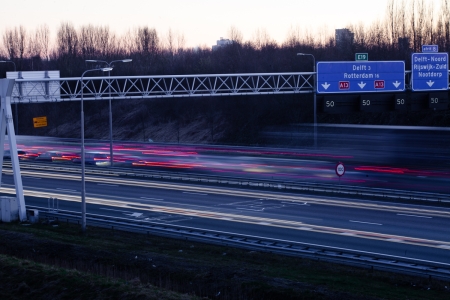When changing over to winter time, we can sleep for another hour; when changing over to summer time for one hour less. For some people, the latter may lead to usually temporary sleep deprivation and fatigue. Since the time difference only amounts to one hour, most people’s biological clock gets used to this quickly. The changeover to winter time is usually easier and leads to fewer complaints about fatigue; the reason being that our biological clock encompasses a period slightly longer than 24 hours [25] [26]. The changeovers from and to winter and summer time do therefore not noticeably effect road user fatigue.
Yet, the changeover to winter time is related to a higher crash risk. This is not caused by fatigue however, but rather by the sudden change of an evening rush hour in daylight to one in darkness. During evening rush hours in darkness the number of crashes is higher than in daylight. Above all, pedestrians and cyclists run higher risks in darkness, but car drivers run higher risks as well [27]. The increased risk remains apparent for a few months after the winter time changeover and does, therefore, not relate to the changeover as such but to the rush hour in darkness. In terms of traffic safety, a permanent changeover to summer time would, therefore, be preferable.
